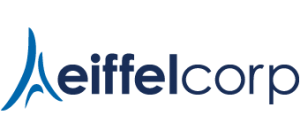
Understanding the Importance of Technological Competence When Moving into the Digital Education Space
The past decade has seen the world of higher education gradually shifting. And Covid-19 caused that shift to advance to seismic proportions. Universities and educators, along with students, had to adjust quickly. In response, universities transitioned to online and blended learning models, leaving a lasting impact on teaching modalities. Subsequently, the prowess of digital technology has become more critical than ever. In fact, the shifts have paved the way for various possibilities in higher education.
This shift is not only about using technology for teaching; it encompasses a holistic integration of digital teaching methods, digital literacy for lecturers, and the need for students to be competent in the digital realm. As we delve deeper into the nuances of online and blended learning teaching, the indispensability of technological competence for educators becomes evident.
A Quick Dive Into Research
A recent article published by Modimowabarwa Kanyane in 2023, highlights the unique challenges faced by the South African higher education system. The article states that while there’s a global movement towards integrating digital tools in educational environments, South Africa is faced with challenges caused by tremendous inequalities. This disparity often results in unequal access to digital resources, with a large part of our population lacking access to fundamental utilities like electricity and internet connectivity, let alone advanced digital tools.
We have seen some South African government-driven initiatives to address these disparities. These include Staffing South Africa’s Universities Framework (SSAUF), the New Generation of Academics Programme (nGAP), the University Capacity Development Programme (UCDP), and the University Capacity Development Grant (UCDG). Sadly, a relatively large gap must be addressed to ensure equitable access to digital education tools for educators and students.
The Importance of Technological Competence
With all the challenges we face in South Africa, it can be argued that the immediate needs in the Education Sector should be a first priority. Considering this, there is a need to unpack why technological competence is not only nice to have, but rather crucial in the digital age.
Boosting Digital Literacy: The rise of digital learning platforms has made it imperative for lecturers to be digitally literate. The research underscores that a lecturer’s digital literacy has direct implications on the quality of their teaching using IT. If they aren’t confident about their digital skills, they’re less likely to incorporate technology in education.
Empowering Students for a Digital Society: In a world where digital fluency is no longer optional, universities bear the responsibility of equipping students with the right digital skills. This requires lecturers not only to teach these skills but also to serve as role models in applying them.
Innovation in Teaching Methods: With the increasing adoption of online teaching, educators who can seamlessly integrate IT into their teaching methods can offer a more flexible and personalised learning experience. It goes beyond mere content delivery; it’s about fostering interactive, engaging, and innovative digital environments.
Key Competencies for Technological Competence
To embrace digital teaching and learning and apply the technology available optimally, the following key competencies are highlighted as a foundation for educators.
Summarised and extracted from “A framework for digital competencies of lecturers” by Jo Tondeur et al.
Essential IT Competencies: The cornerstone of digital education, this involves a lecturer’s prowess in using IT tools effectively, adapting to new tools, and understanding their implications in an educational setting.
Information, Data, and Media Literacy: As the web burgeons with information, lecturers should possess the acumen to find, analyse, and assess the reliability of digital data. Further, understanding copyright nuances, especially in the age of open-source learning, is paramount.
Computational Thinking: This transcends traditional programming. It’s about breaking down complex educational challenges and leveraging technology to address them, ensuring that solutions are not just technically sound but also pedagogically relevant.
Blended Learning Approaches: The amalgamation of traditional classroom teaching with online education offers a balanced learning experience. Lecturers adept in blended learning can effectively juggle between offline and online modules, ensuring consistency in teaching quality.
Embracing Digital Teaching and Learning
It is therefore clear that moving into the digital education space requires more than just a basic understanding of technology. It’s about evolving with the digital tide, ensuring that teaching methods are continually refined, aligned with technological advancements. For educational institutions around the world, investing in professional development that emphasises technological competence is not just beneficial; it’s imperative.
In conclusion, as the realms of education and technology intertwine more intricately, the onus is on educators to stay abreast with the changing digital landscape. After all, in the digital teaching and learning world, technological competence is the linchpin that holds the edifice of modern education together.
We know that technology is evolving rapidly, and it’s essential for higher education to keep pace. For university lecturers and educators who are looking to integrate technology into their teaching methods effectively, we’re here to help. Our Digital Teaching eXpert (DTX) Series is crafted precisely for this purpose. It equips educators in higher education with the most effective tools and strategies for digital teaching.
If you’re a lecturer or educator in higher education eager to enhance your teaching methods for the digital age, reach out to us today. Learn more: https://newsletter.eiffelcorp.co.za/2021/10/14/secure-your-seats-for-dtx/
References:
Tondeur, Jo & Howard, Sarah & Zanten, Manon & Uerz, Dana & Nackaerts, Ulrike & Kral, Marijke & Gorissen, Pierre & Neut, Irma. (2022). A framework for digital competences of lecturers.
Kanyane, M. (2023). South African higher education system and its digital challenges.
Kimmig, A., Peng, J., & Ovtcharova, J. (2023). Building capacity for Industry 4.0.



